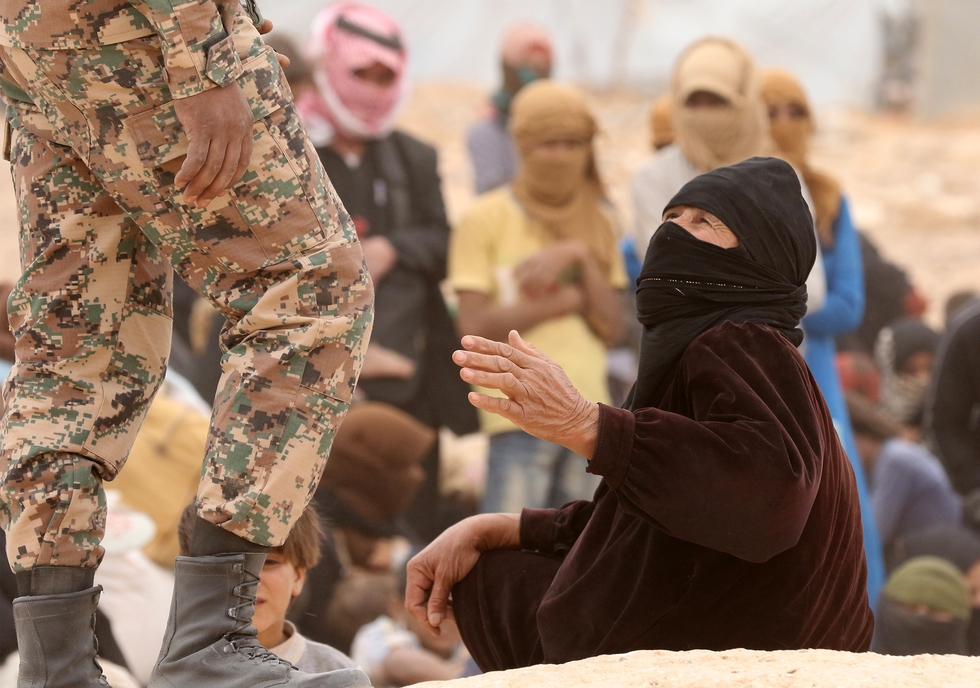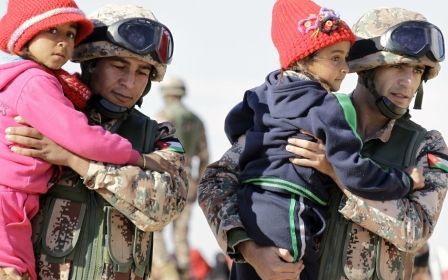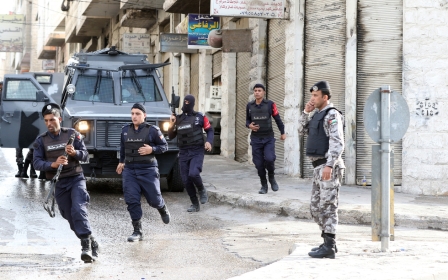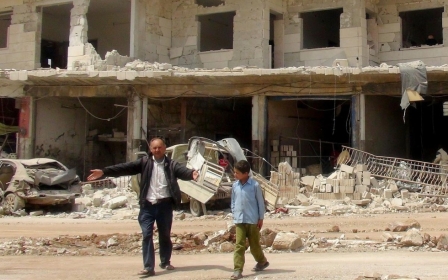Syrian refugees riot at no-man's land camp near Jordan border

AMMAN - Rioting has broken out on an isolated stretch of the Jordan-Syria border where more than 55,000 Syrians have been blocked from seeking asylum in Jordan.
The unrest engulfed an informal crossing point called Ruqban during a humanitarian operation to register the Syrians with the UN’s refugee agency on Wednesday.
According to aid officials, the crowd became uncontrollable as people queued to register their claims with UNHCR. Jordanian border guards were unable to restore calm, sources said, and UN staff were evacuated from the area.
This is second such incident this year: in early March, a refugee was killed when security forces opened fire during a riot.
Aid officials refuse to comment about the settlement at Ruqban for fear of losing access, but privately they say violence is increasing as this wild-west, unmanageable settlement grows.
Regional instability has driven the country to seal its borders, but Syrians seeking refuge from the five-year civil war have gathered in the demilitarised zone at Ruqban.
The group on the border has grown from 2,000 people in September 2015, to 12,000 in December, to more than 55,000 today.
Most are camped out in the demilitarised zone between the two earthen berms that run east-west along the length of the Jordan-Syria border.
The southern berm, a mound of earth about five feet high policed by Jordanian border guards, serves as a de-facto dividing line: military personnel are legally prohibited from entering the demilitarised zone.
Without military protection and with no clear sense of which country they are in, aid workers also stay out of the demilitarised zone, said Human Right Watch researcher Adam Coogle.
“In the area, humanitarian agencies understand that the actual border is somewhere between the two berms, but our understanding is that it has not been clearly delineated,” he said.
Aid agencies provide basic medical care, food and water, but supplies are short and queues long. Scuffles are common, said Widad, a mother of three who spent January on the berm.
“We would line up all day from 11am to 6pm, and they would sometimes run out of food, so we would go to bed hungry,” she said.
“There’s a lot of intertribal violence,” said Aamer Hussein, a father of one from Palmyra who spent several months on the berm with his pregnant wife.
“A week before my wife and I were let into Jordan, the fighting got so bad I wrapped my wife in blankets and hid her in the tent, I was so afraid she was going to be hurt,” he told MEE.
Refugees say violence spikes when people queue up for food, water or aid – as it it did on Wednesday. The result is typically an evacuation of humanitarian staff, leaving people hungry and frustrated.
The situation, refugees say, is combustible, and with a very short fuse.
With no police or military presence and a steady flow of displaced Syrians looking for security, food and water, this stretch of desert once home to little more than scorpions and snakes is now the largest settlement in all of south-eastern Syria.
It is also, say officials, home to militants and bandits – in particular, Islamic State elements.
In January, King Abdullah told CNN, “We know there are [Islamic State] members inside those camps.”
As the group at Ruqban has grown, insiders quietly say a criminal underbelly has undeniably established itself. Security fears, once unproven, look increasingly real from Amman.
Economically fragile Jordan, which has already offered refuge to around a million Syrians, is struggling to maintain security and allocate scant resources.
Letting in more Syrians is widely seen as a move that would endanger Jordan’s security in the short term, and, with the knock-on effects of rising rents, falling wages and water shortages, threaten its stability in the longer term.
With mounting international pressure to let refugees in, the government here has implemented strict security procedures on the border, admitting fewer than 100 people each day.
Yet for many Syrians seeking refuge from war, the wait, the violence and the food shortages don't matter, said a mother of two named Zein from her shelter at Azraq refugee camp.
"The berm is a border, so there are no airstrikes. It’s safer than being in Syria, and that’s the most important thing," she said.
New MEE newsletter: Jerusalem Dispatch
Sign up to get the latest insights and analysis on Israel-Palestine, alongside Turkey Unpacked and other MEE newsletters
Middle East Eye delivers independent and unrivalled coverage and analysis of the Middle East, North Africa and beyond. To learn more about republishing this content and the associated fees, please fill out this form. More about MEE can be found here.




